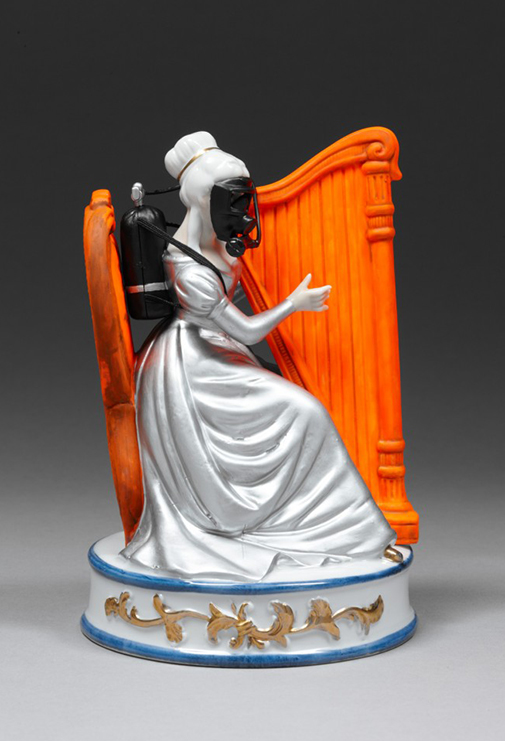- Vol. 05
- Chapter 11

THE SECRET CONCERT, HAMBURG, 1942
First there was a trumpet discovered in the ticket office, behind cobwebbed glass and behind a furred velvet curtain that was drawn. The trumpet was just sitting on the cushioned seat all brassy and breathless and cold. Then a clarinet was found in the theatre stalls, and a cello outside casually leaning against the locked front door as though it had been waiting some time to be admitted and had grown tired and slumped. A tuba was abandoned in the men’s toilet.
How they came to be where they were was a mystery. It was as though a whole orchestra had made a secret visit to the empty Festspielhaus, delivered a quick and impromptu concert, and then fled in a mad and forgetful rush. This sometimes happened these dark damned days, when men in black shirts were liable to swoop down on anything considered degenerate or depraved: Mendelssohn and Schönberg.
A violin was uncovered in the costume cupboard, wrapped in a maid’s white petticoat, and the bow and rosin concealed the same. And the three parts of a flute appeared suddenly in the gleam of the cutlery drawer in the canteen, as though it was pretending to be a knife and a fork and a spoon. There was a conductor’s baton lying there, too.
The instruments were, over the course of a day, quietly gathered together in the back studio, and as the search widened, more and more were added to the collection. Word soon spread beyond the theatre and it was rumoured that a concert of Offenbach had been heard the night before by a group of music enthusiasts, or that Rachmaninov or Tchaikovsky would be played one night later the next week, the musicians reading the notes by candlelight or touch and the rest of the theatre in darkness.
Nothing was certain.
THE SECRET CONCERT, HAMBURG, 1942
Newspaper sellers, those days usually so sullen and so serious, stood on street corners whistling snatches of Swan Lake or something from The Tales of Hoffmann; and window cleaners hummed tunes from A Midsummer Night’s Dream.
Then, almost at the last, unaccountably missed till then, a Lyon and Healy pedal harp was found lurking on the stage, just behind the front curtain, a distant echo of music seeming still to thrum from its forty-seven strings. It took two men to shift the harp into the back.
And maybe there had been a concert, where the musicians wore masks as though it was carnival. And the audience wore masks, also. And maybe there was dancing in the rehearsal rooms and men in heavy boots were there, too, and even they danced. And in the Messerschmitt sky above the theatre there were angels listening – there must have been, souls uplifted, music more holy than prayer. Maybe there had been a concert, in secret, but who is there now to say that there was and where have all the musicians gone, and the instruments gone, too, even the harp?
